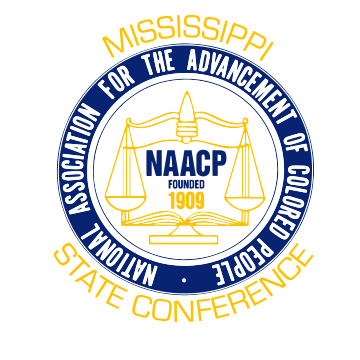Justice Department to Fault Ferguson Police, Seeing Racial Bias in Traffic Stops
2015/3/2-The Justice Department has nearly completed a highly critical report accusing the police in Ferguson, Mo., of making discriminatory traffic stops of African-Americans that created years of racial animosity leading up to an officer’s shooting of a black teenager last summer, law enforcement officials said.
According to several officials who have been briefed on the report’s conclusions, the report criticizes the city for disproportionately ticketing and arresting African-Americans and relying on the fines to balance the city’s budget. The report, which is expected to be released as early as this week, will force Ferguson officials to either negotiate a settlement with the Justice Department or face being sued by it on civil rights charges. Either way, the result is likely to be significant changes inside the Ferguson Police Department, which is at the center of a national debate over race and policing.
Ferguson erupted into angry, sometimes violent protests after a white police officer, Darren Wilson, shot and killed an unarmed black teenager, Michael Brown, in August. The Justice Department investigated that shooting, and officials have said they will clear the officer of civil rights charges. That finding is also expected soon.
But the report into the broader practices of the local police department will give the context for the shooting, describing the mounting sense of frustration and anger in a predominantly black city where the police department and local government are mostly white.
While the Justice Department’s exact findings are not yet known, Attorney General Eric H. Holder Jr., who is expected to leave office in the next few weeks, and other officials have said publicly that their investigation has focused on the use of excessive force and the treatment of prisoners in local jails as well as the traffic stops.
Blacks accounted for 86 percent of traffic stops in 2013 but make up 63 percent of the population, according to the most recent data published by the Missouri attorney general. And once they were stopped, black drivers were twice as likely to be searched, even though searches of white drivers were more likely to turn up contraband.
For people in Ferguson who cannot afford to pay their tickets, routine traffic stops can become yearslong ordeals, with repeated imprisonments because of mounting fines. Such fines are the city’s second-largest source of revenue after sales tax. Federal investigators say that has provided a financial incentive to continue law enforcement policies that unfairly target African-Americans.
In an unrelated but similar case, the Justice Department recently filed court documents in a lawsuit over whether the city of Clanton, Ala., is running a debtors’ prison. The lawsuit says city officials there keep poor people in jail simply because of their inability to pay fines.
“Because such systems do not account for individual circumstances of the accused, they essentially mandate pretrial detention for anyone who is too poor to pay the predetermined fee,” wrote Vanita Gupta, the top civil rights prosecutor at the Justice Department, who is also supervising the Ferguson inquiry.
Investigators do not need to prove that Ferguson’s policies are racially motivated or that the police intentionally singled out minorities. They need to show only that police tactics had a “disparate impact” on African-Americans and that this was avoidable. Nevertheless, the Justice Department’s report is expected to include a reference to a racist joke that was circulated by email among city officials, according to several law enforcement officials.
James Knowles III, the mayor of Ferguson, said last week that he did not know what the Justice Department had found or would conclude. But he criticized Mr. Holder for saying recently that wholesale change was needed in Ferguson’s police department.
“How come they haven’t told us there is something that needs to be changed as they found it?” Mr. Knowles asked. “Why have they allowed whatever they think is happening to continue to happen for six months if that’s the case?”
Mr. Holder has stood by his remarks, saying they were based on his deep understanding of the case. “The reality is, I’ve been briefed all along on this matter,” he said at a news conference recently.
The Ferguson case will be the last in a long string of civil rights investigations into police departments that Mr. Holder has directed during his tenure. Since he became attorney general in 2009, the Justice Department has opened more than 20 such investigations and issued strong rebukes of departments in Cleveland and Albuquerque, accusing them of excessive force and unwarranted shootings.
The Ferguson report, however, is expected to more closely resemble last summer’sreport into police activities in Newark. There, as in Ferguson, the police stopped black people at a significantly higher rate than whites. “This disparity is stark and unremitting,” the Justice Department wrote in that report, which concluded that African-Americans “bear the brunt” of the city’s unconstitutional police practices.
In some cities investigated by the Justice Department, such as Albuquerque and Portland, Ore., city officials have said they are open to making changes and quickly reaching an agreement with the department to fix problems. Others have taken a more confrontational approach, did not settle and faced a federal civil rights lawsuit. The Justice Department has four such lawsuits open, including one against Sheriff Joe Arpaio of Maricopa County, Ariz., and another against Sheriff Terry S. Johnson of Alamance County, N.C.
Mr. Knowles said he would not speculate on how Ferguson would respond to the report. “The City of Ferguson is going to make its decisions based on what its residents and the people in this region feel is necessary to move us forward,” he said.
Mr. Knowles said the city hoped to increase diversity on its police force and was considering creating a board of citizens to help oversee it. He said the city was also considering creating a police youth program.
For Mr. Holder, the nation’s first black attorney general, the Ferguson shootingwas a signature moment. Already the most outspoken member of the Obama administration on issues of race relations, Mr. Holder became the president’s emissary to Ferguson and helped calm tensions amid protests after the shooting. He spoke in personal terms about being stopped by police as a college student and again as a prosecutor in Washington.
“I wanted the people of Ferguson to know that I personally understood that mistrust,” Mr. Holder said last summer after returning from Missouri. “I wanted them to know that while so much else may be uncertain, this attorney general and this Department of Justice stands with the people of Ferguson.”
Comments like these attracted criticism from some police groups who said Mr. Holder was taking sides and casting aspersions on police officers. Mr. Holder has pledged that the Ferguson investigation — by far the most closely watched during his tenure — would be fair and independent. “I’m confident people will be satisfied with the results,” he said.
Source: NY Times




